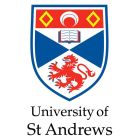Economics
Economics () is the social science that studies the production, distribution, and consumption of goods and services.
Financial Economics
Financial economics is the branch of economics characterized by a "concentration on monetary activities", in which "money of one type or another is likely to appear on both sides of a trade". Its concern is thus the interrelation of financial variables, such as prices, interest rates and shares, as opposed to those concerning the real economy. It has two main areas of focus: asset pricing (or "investment theory") and corporate finance; the first being the perspective of providers of capital, i.e. investors, and the second of users of capital.
Mathematics
Mathematics (from Greek μάθημα máthēma, "knowledge, study, learning") is the study of such topics as quantity, structure, space, and change. It has no generally accepted definition.
Economics
The field of economics is not exempt from the consequences of chaos and complexity. Marketplaces are indeterminate; value is subjective; and outcomes are subject to interpretation. Economic forecasting is just as nebulous, being based on the probability of statistical information that may or may not be accurate.
L.K. Samuels, In Defense of Chaos: The Chaology of Politics, Economics and Human Action, Cobden Press (2013) p. 16.
Economics
Give not Saint Peter so much, to leave Saint Paul nothing.
George Herbert, Jacula Prudentum (1651). Reported in Hoyt's New Cyclopedia Of Practical Quotations (1922), p. 216.
Mathematics
“It’s magic,” the chief cook concluded, in awe.
“No, not magic,” the ship’s doctor replied. “It’s much more. It’s mathematics.”
David Brin, Glory Season (1993), chapter 24

